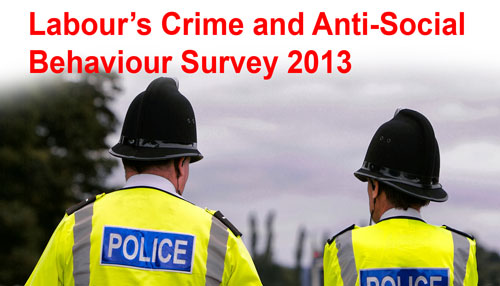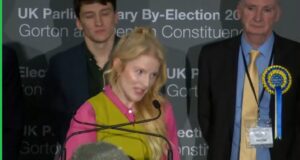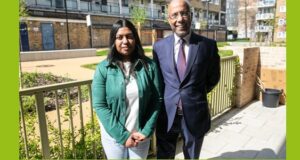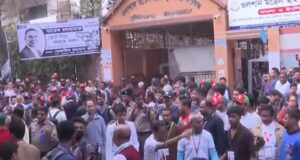 With the New Year, the minds of the Borough’s politicians are beginning to be concentrated on setting out their stalls for the forthcoming elections in May. But has Labour’s campaign stalled even before it’s begun? The Tower Hamlets Labour Party website home page slipped into the New Year showcasing “Labour’s Crime and Anti-Social Behaviour Survey 2013”: but will the strategy chime with voters?
With the New Year, the minds of the Borough’s politicians are beginning to be concentrated on setting out their stalls for the forthcoming elections in May. But has Labour’s campaign stalled even before it’s begun? The Tower Hamlets Labour Party website home page slipped into the New Year showcasing “Labour’s Crime and Anti-Social Behaviour Survey 2013”: but will the strategy chime with voters?
First on their website article, Labour insists that crime and antisocial behaviour are top concerns for residents. Of course no one likes crime and anti-social behaviour: but at a time of austerity, there are other worries too – and what could a Labour Council do to stop criminals?
However, it’s Labour’s second point which is more stunning. Labour reports serious crime is increasing in Tower Hamlets, whereas it is dropping across the rest of East London. What figures is Labour basing this statement on? There were figures announced last year which proclaimed that crime had risen by 9% in Tower Hamlets in the context of a 2% drop across London as a whole. However, the figures were quickly exposed as based on a police error. The Evening Standard reported, on 27th November 2013, that
“A computer error by the Met had produced a spike in crime in a three year period six times greater than it really was. Tower Hamlets actually experienced 28,670reported crimes in the financial year 2010-2011 and 29,080 in 2012-13, a rise of 410. But the Met’s crime mapping website wrongly stated that Tower Hamlets had seen 26,989 crimes in 2010-11 and 29,510 in 2012-13, a rise of 2,521 – the wrong lower figure in 2010-11 appearing to give a dramatic increase compared to 2012-13.”
The Standard reports that the error came to light after Labour Councillors had expressed outrage at the 9% increase. So is the Labour Party’s concern about crime based on the same figures which worried their councillors (but which were wrong), or is it the rise of 410 reported crimes a year that is catapulting “crime” to the top of residents’ concerns? That rise came after a campaign to tackle domestic violence which did see more women having the courage to report these incidents, which would show up in the “reported crime” figures. But that’s what happens when you give women the courage to stand up against abuse: more crimes are reported rather than victims staying silent. You can’t ask women to stay silent just to keep the crime figures down.
There’s more. Labour explains that the rise in crime (if there is one) occurred “under the current Mayor of the borough, Lutfur Rahman”. Is the Party seriously suggesting that Lutfur Rahman is causing the crime? In fact, under Lutfur Rahman, extra money was spent on police and extra Enforcement Officers were engaged (some of which Labour opposed at the time). If Labour is not alleging that Lutfur Rahman caused the crime, why mention his name? If they are saying he is linked to the increase in crime, how did he cause it? Is the Party really suggesting Lutfur Rahman’s going round the Borough with a pebble in the toe of an old sock, nicking car radios in his spare time?
By now you’ll be wondering what Labour’s policies are, the ones that are going to tackle the crime wave. So are they. They will be holding meetings round the borough to discuss your local crime challenge (it’s not clear whether they will tell you what your crime challenge is, or whether they will be asking you). These local discussions are, they tell us, part of Labour’s push to involve local people in their policies for the “upcoming elections” – in sharp contrast to Lutfur Rahman’s “secretive and inaccessible administration”.
This is a welcome turnaround. Up to now, even local Labour Party members were not allowed to be involved with the basic job of choosing their own local candidate: they were over-ruled by Labour’s national bosses. So it can only be good that instead of imposing their own ideas upon us, Labour’s going to trust the people this time. Of course, last time Labour let local people decide – and local electors chose local candidate Lutfur Rahman in preference to the Labour candidate chosen by Labour’s national bosses – Labour was furious with us for choosing the wrong candidate. And local Labour Party members have not been allowed to choose their Council candidates this time round – but that’s another story.
 East London News A Force for the community…
East London News A Force for the community…




